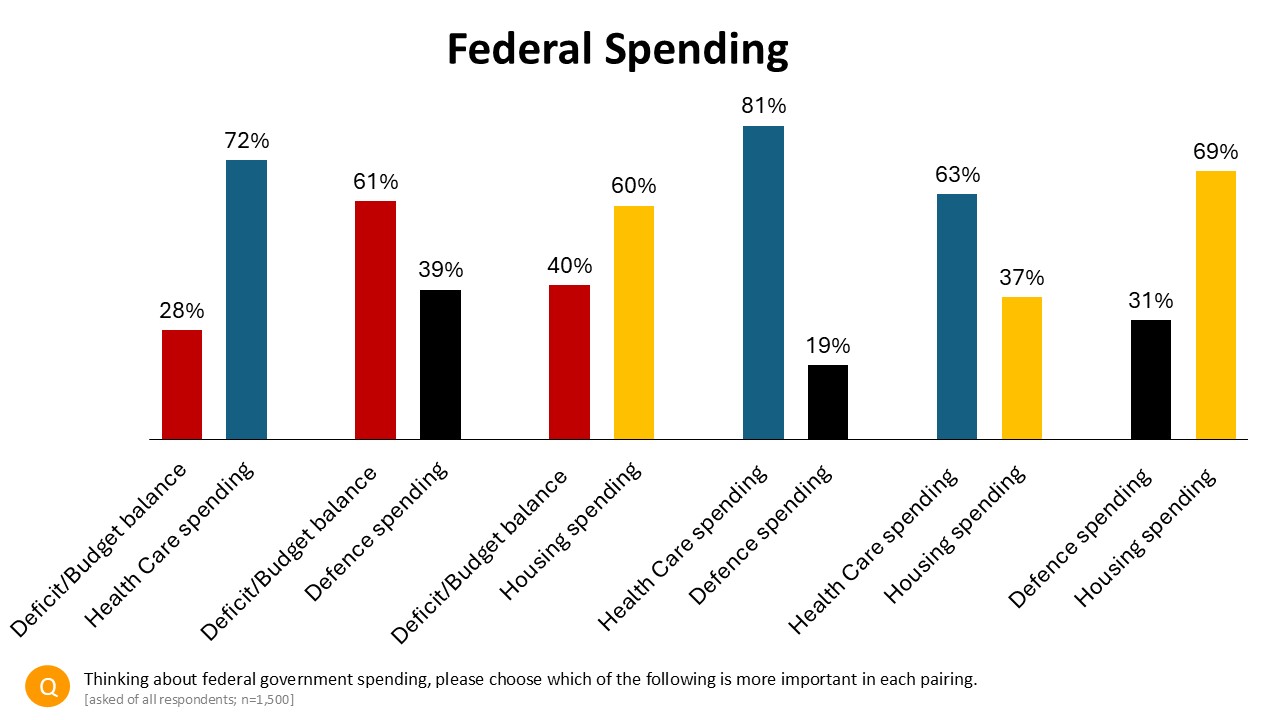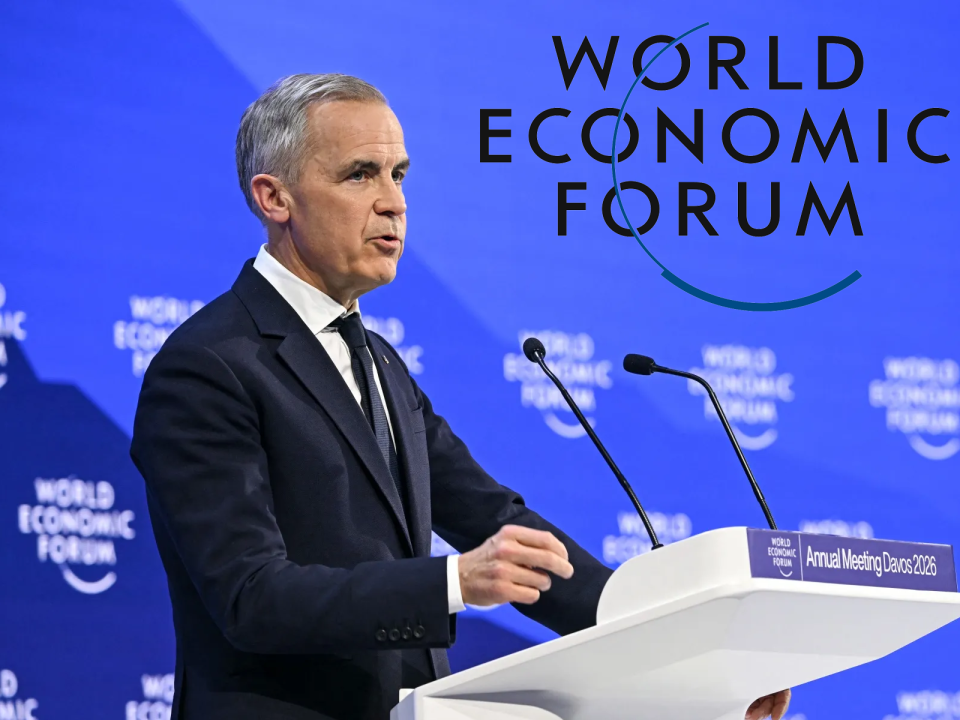
Canadians are expecting significant investments from the Carney government, despite austerity signals in the Speech from the Throne.
These results come from an online poll conducted between May 12th and May 22nd, 2025, of 2,517 Canadian citizens, 18 years or older. This survey was sponsored by INNOVATIVE Research Group Inc. and weighted to n=1,500 based on age, gender, region, education, and self-reported past federal vote to ensure the overall sample reflects the population according to Census data.
Ahead of the G7 Summit, Prime Minister Mark Carney signaled an increase in defence spending to bring Canada quickly up to the 2% of GDP target for NATO members. Cost of living and housing remain Canadians’ top personal priorities, however, with 45% naming them as their most pressing issue. Despite foreign affairs, such as relations with the US appearing much further down the list, the recent federal election certainly demonstrated that foreign issues could move Canadians.
When asked about federal spending in a series of forced choices, Canadians favour investments in health care over housing, fiscal restraint, or defence. Health care won every choice, and housing was chosen over everything except healthcare. Defence lost every choice, and fiscal restraint was chosen only over defence.
There is a clear generational divide buried in those choices, however. Younger Canadians, both men and women (49%), compared to older cohorts (M +55 25%, W +55 27%), are more likely to prioritize housing. Older (M +55 75%, W +55 73%), Populist (72%) and Deferential Conservatives (68%), lean heavily toward health care spending.
Defence spending is the last prioritized of the four categories, coming last in every head-to-head comparison. When asked to choose between balancing the budget or investing in defence, 61% prefer fiscal responsibility. Still, support for increased defence spending is notably higher among older Canadians. We saw this back in November, when a majority of Canadians (56%) supported living up to Canada’s commitments to NATO, and 41% agreed that Canada should do more to meet its NATO commitments.
Public opinion on deficit spending is almost split, with 53% seeing it as a forward-looking strategy and investment in education, infrastructure and job creation, and 47% viewing it as an unfair burden on younger generations. Concern is widespread, with 75% at least somewhat concerned about the deficit, and 40% very concerned. Among Conservatives, two-thirds attribute it to poor government management.
Prime Minister Carney’s Throne Speech pointed toward an austerity agenda, but the responses we see from the Liberal voting coalition in this spending data, and in the recent data on the US relationship, point to a strong demand for spending. That tension may create a Liberal political vulnerability, and a Bloc and NDP opportunity.
Carney and his Liberal government still face significant challenges. As we noted earlier this month, time for a change remains high and voters, including Liberal voters, are looking for clear change from the Trudeau era. President Trump remains unpredictable, and Carney does not control the outcome on the tariff files. And Alberta and the Prairies are disappointed with the election outcome and considering separatism to a degree not seen before.


































